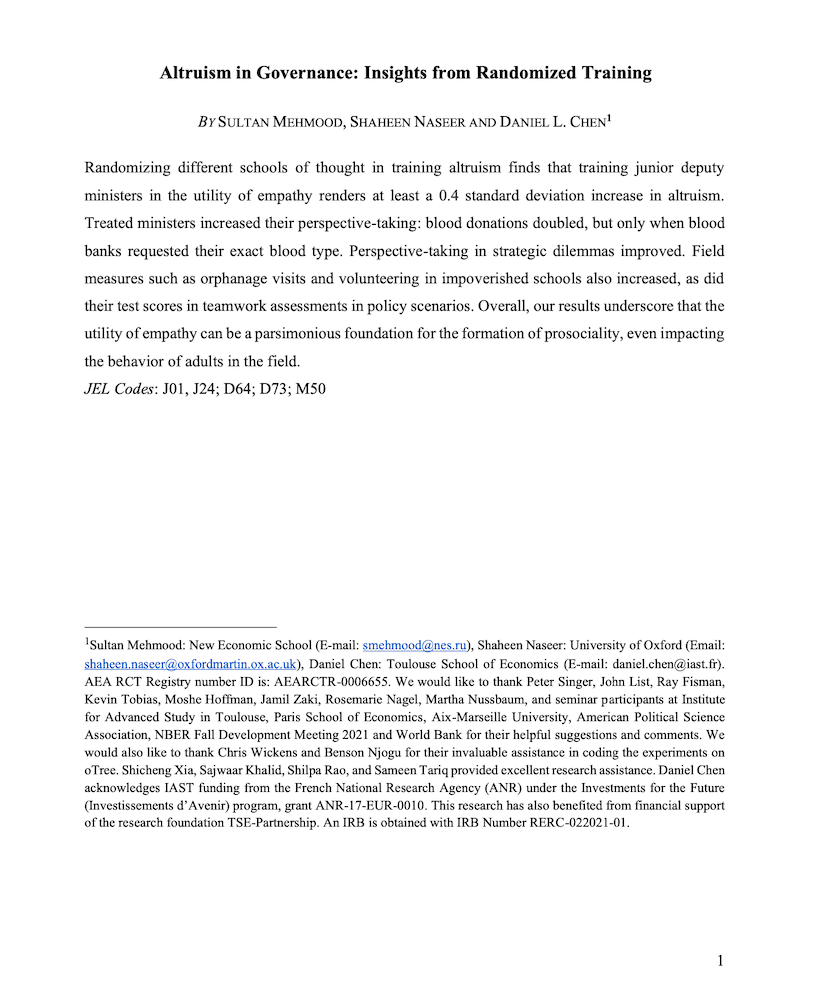Altruism in governance: Insight from randomized training
Sultan Mehmood (New Economic School), Shaheen Naseer (Lahore School of Economics) and Daniel L. Chen (Toulouse School of Economics)
GPI Working Paper No. 7 - 2022, published in the Toulouse School of Economics Working Paper series and in the Journal of Development Economics
Randomizing different schools of thought in training altruism finds that training junior deputy ministers in the utility of empathy renders at least a 0.4 standard deviation increase in altruism. Treated ministers increased their perspective-taking: blood donations doubled, but only when blood banks requested their exact blood type. Perspective-taking in strategic dilemmas improved. Field measures such as orphanage visits and volunteering in impoverished schools also increased, as did their test scores in teamwork assessments in policy scenarios. Overall, our results underscore that the utility of empathy can be a parsimonious foundation for the formation of prosociality, even impacting the behavior of adults in the field.
Other working papers
The paralysis argument – William MacAskill, Andreas Mogensen (Global Priorities Institute, Oxford University)
Given plausible assumptions about the long-run impact of our everyday actions, we show that standard non-consequentialist constraints on doing harm entail that we should try to do as little as possible in our lives. We call this the Paralysis Argument. After laying out the argument, we consider and respond to…
How to resist the Fading Qualia Argument – Andreas Mogensen (Global Priorities Institute, University of Oxford)
The Fading Qualia Argument is perhaps the strongest argument supporting the view that in order for a system to be conscious, it does not need to be made of anything in particular, so long as its internal parts have the right causal relations to each other and to the system’s inputs and outputs. I show how the argument can be resisted given two key assumptions: that consciousness is associated with vagueness at its boundaries and that conscious neural activity has a particular kind of holistic structure. …
Estimating long-term treatment effects without long-term outcome data – David Rhys Bernard (Paris School of Economics)
Estimating long-term impacts of actions is important in many areas but the key difficulty is that long-term outcomes are only observed with a long delay. One alternative approach is to measure the effect on an intermediate outcome or a statistical surrogate and then use this to estimate the long-term effect. …

